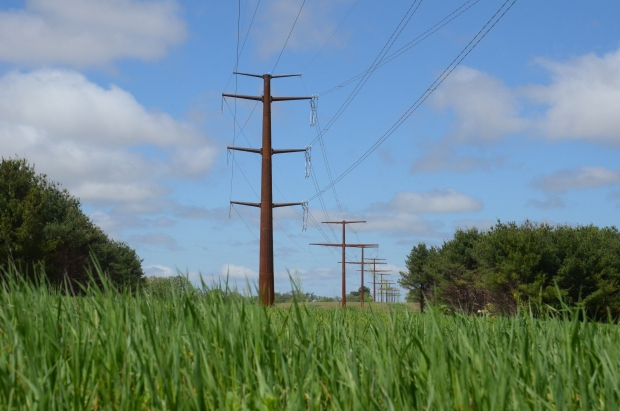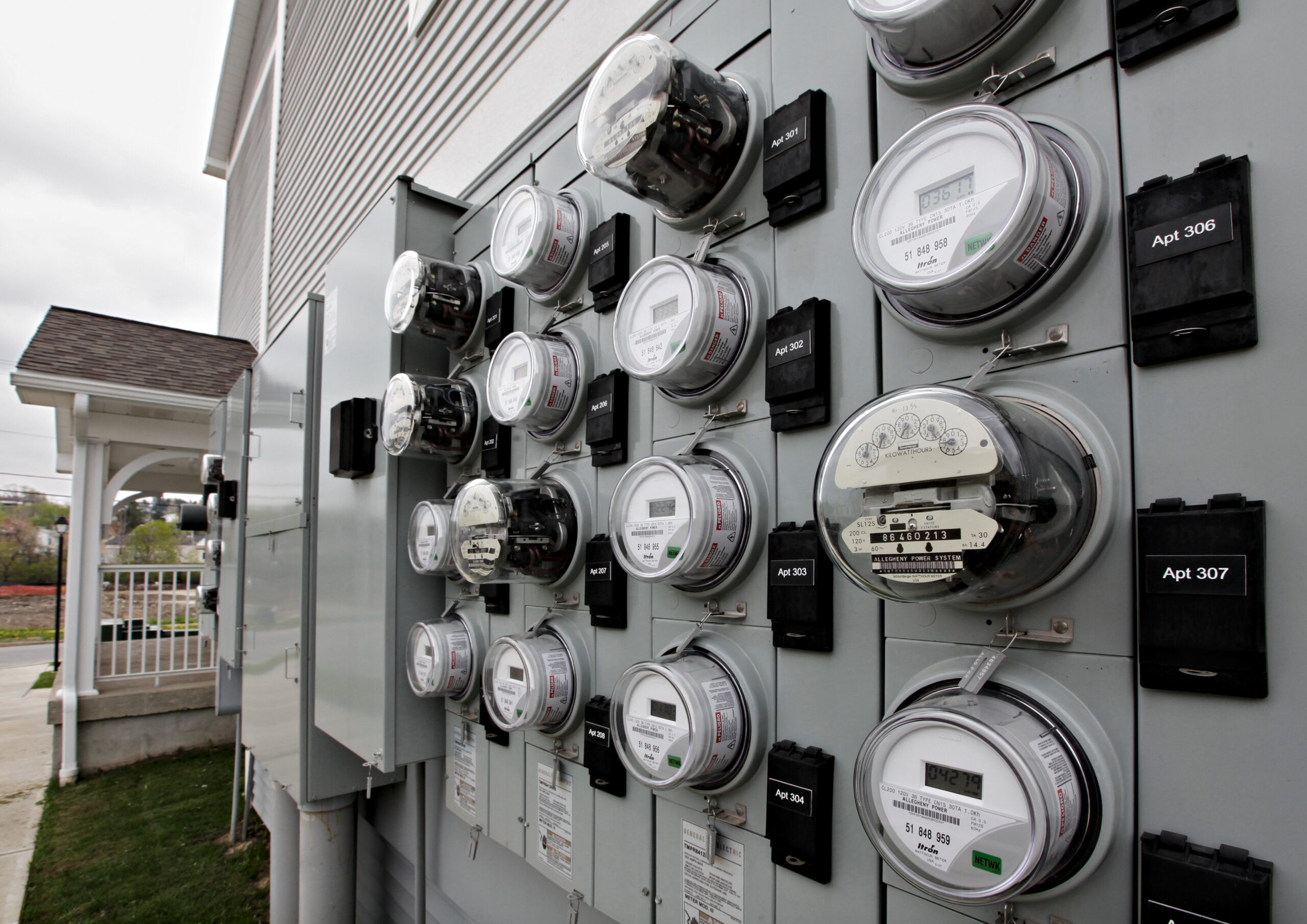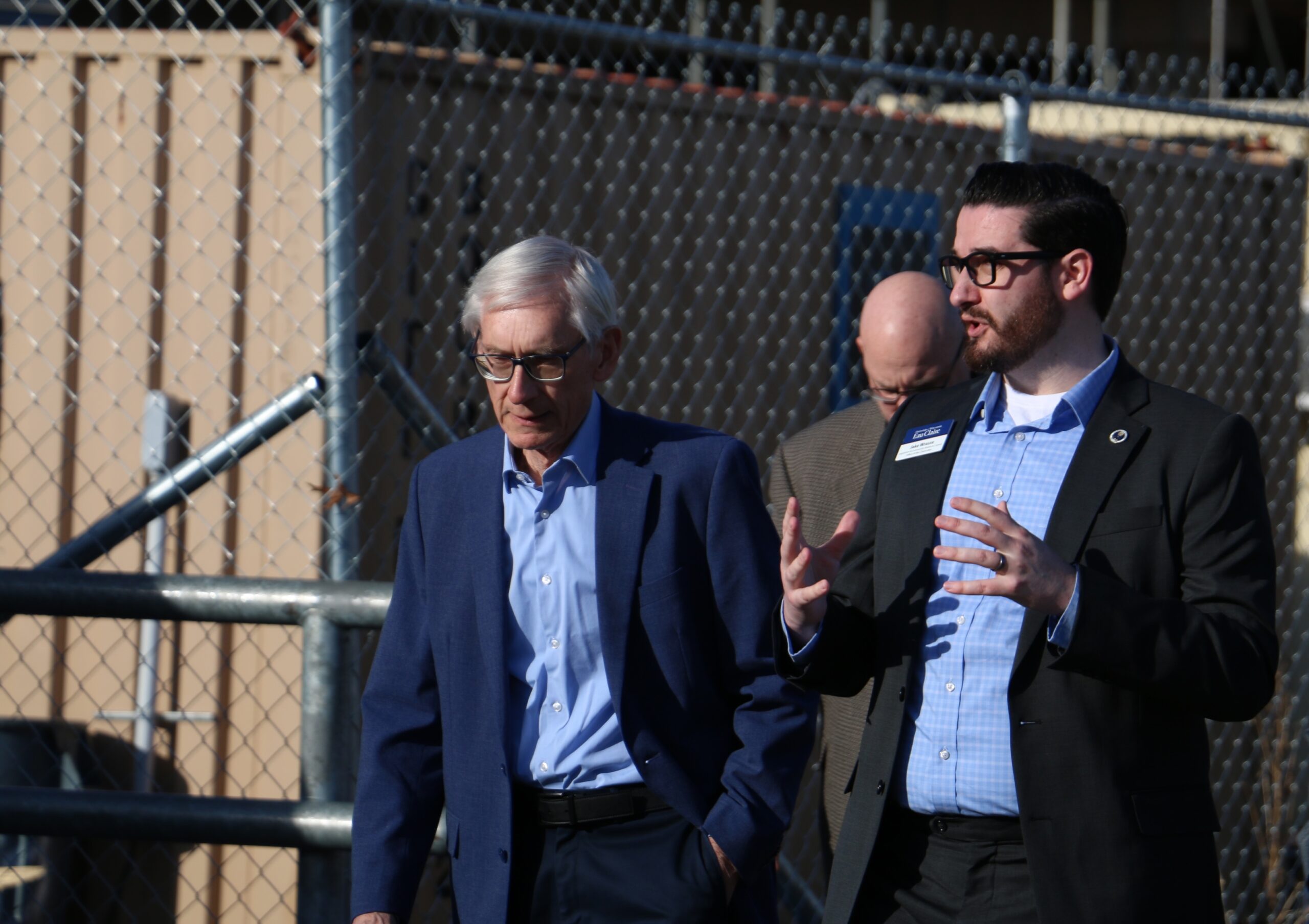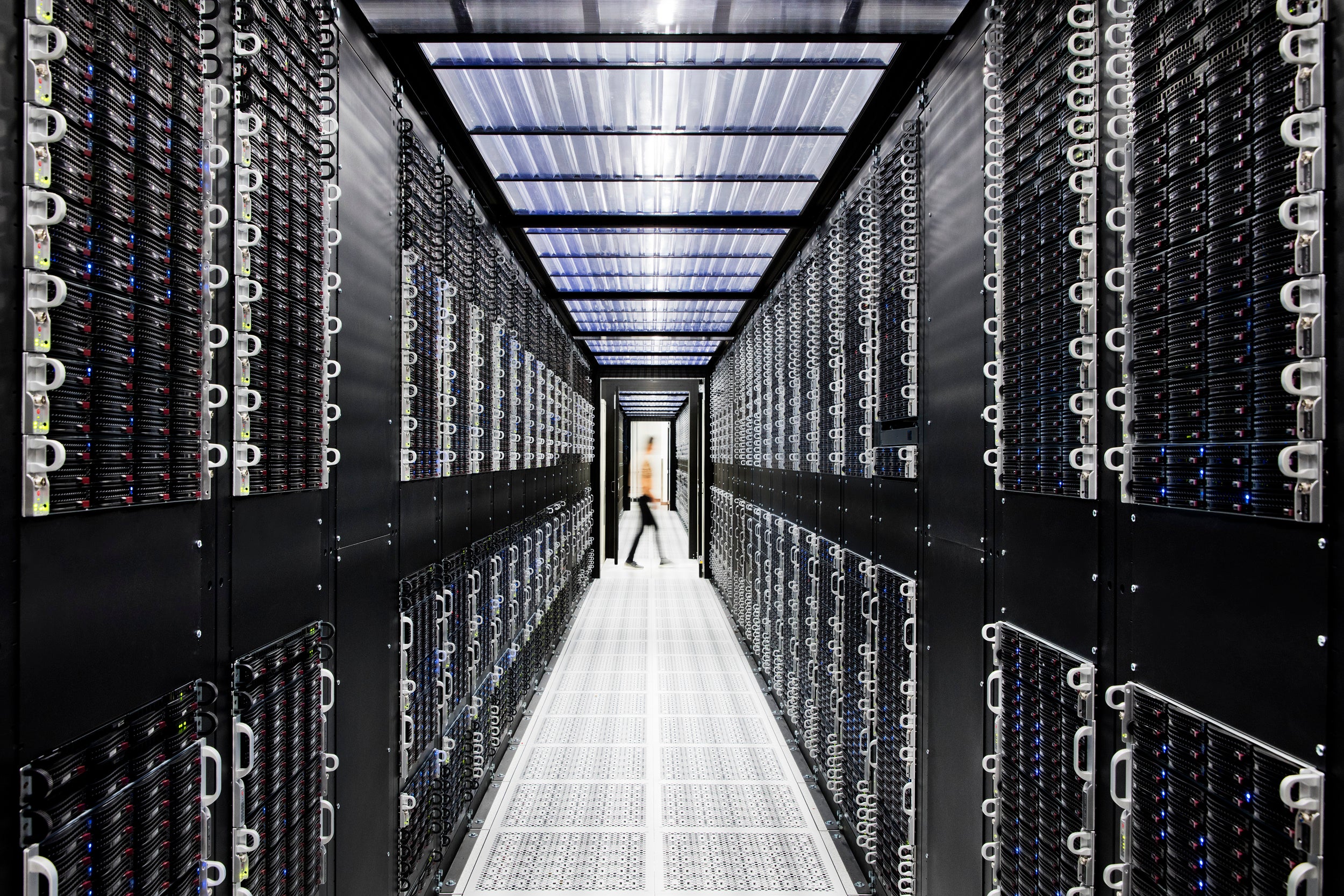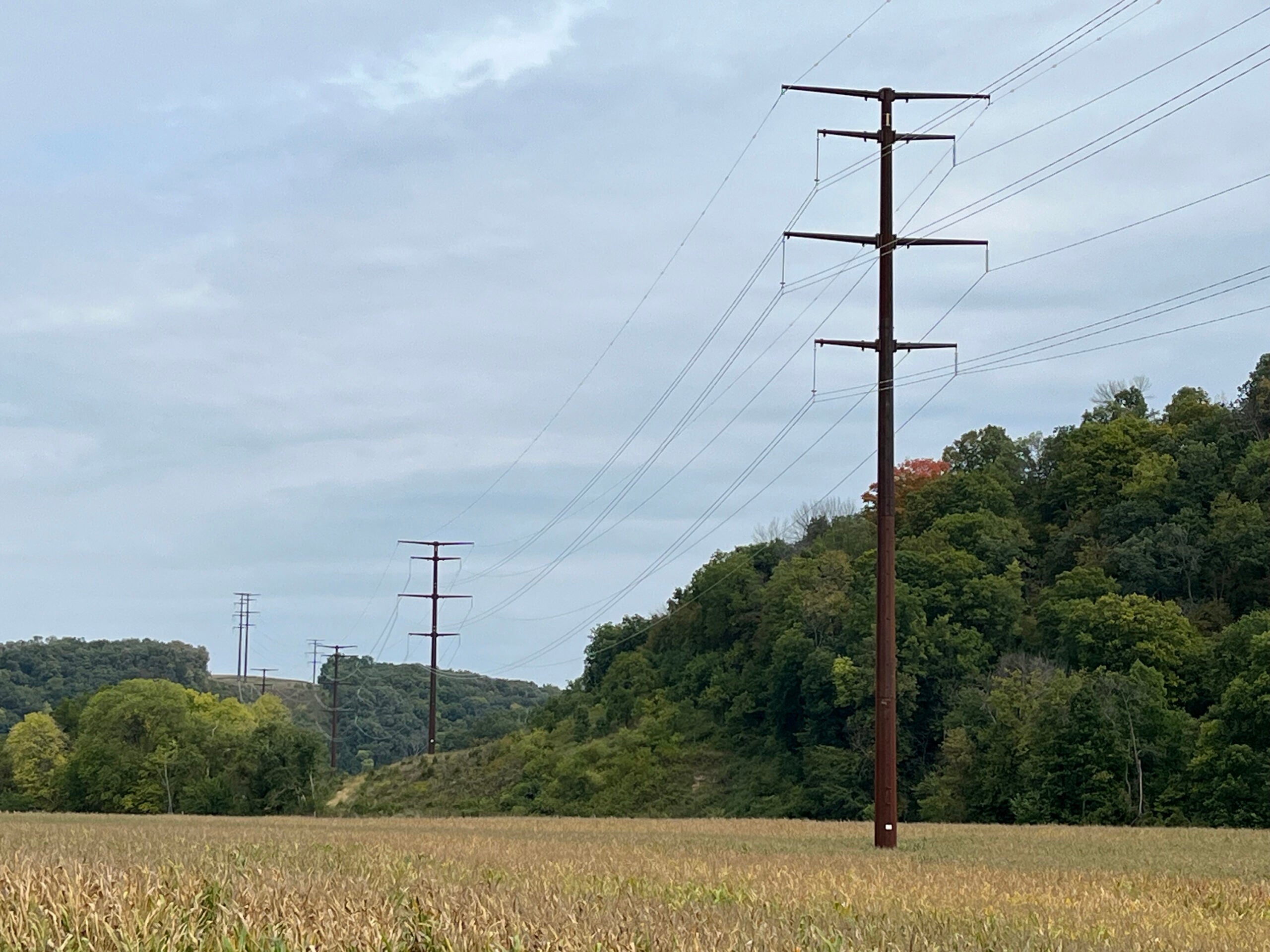Wisconsin is expected to see $4.1 billion of investment in the coming years from six transmission projects as part of the largest portfolio ever approved by the Midwest electric grid operator.
The Midcontinent Independent System Operator, or MISO, in December approved 488 transmission projects that span 5,000 miles across 15 states, including a $21.8 billion portfolio of 24 long range transmission plans.
Six of those long-term reliability projects will be located entirely or partially in Wisconsin. They consist of two new transmission lines from Minnesota and Illinois, portions of other new lines, building new substations and upgrading existing substations, according to the Union of Concerned Scientists.
Stay informed on the latest news
Sign up for WPR’s email newsletter.
MISO estimates construction will generate between 4,000 and 12,257 jobs and between $817 million to $4.5 billion in economic output.
“The renewable energy that will ultimately connect to these new transmission lines will bring additional jobs by the tens of thousands and infrastructure investments by the billions,” James Gignac, Midwest senior policy manager for Climate and Energy at the Union of Concerned Scientists, said in a statement.
The nonprofit Clean Wisconsin estimates MISO’s long range transmission projects will support at least 6.6 gigawatts of clean energy in Wisconsin, more than double the amount the state currently produces.
Ciaran Gallagher, Energy & Air Manager for Clean Wisconsin, said upgrades in transmission infrastructure and capabilities are critical to the transition toward renewable energy and away from fossil fuels.
In the past, fossil fuel-fired power plants were typically sited near large energy users, like big cities, because it was easy to transport electricity across a shorter distance, Gallagher said.
Now, she says clean energy resources, like solar or wind farms, need to be sited in more rural areas with space to accommodate wind turbines and thousands of solar panels.
“By relying on more renewable energy, we do need to be able to draw from different geographic areas and draw that electricity and move it across the footprint in bigger ways,” Gallagher said.
She said the lines approved by MISO in December are expected to come into service around 2032 or 2034.
“This is a big investment,” she said. “This is a long-term investment.”
Three long range projects that cross Wisconsin and were approved by MISO in 2022 are currently in regulatory proceedings with the Public Service Commission of Wisconsin, Gallagher added.
Right of first refusal transmission legislation likely to resurface in 2025
For American Transmission Co., Wisconsin’s largest transmission utility, four of the six long range projects are completely within its service area and two are partially within its area.
Bob McKee, execution director of Strategic Projects for American Transmission Co., said MISO has yet to assign who will build those projects.
“ATC certainly will build some of these. Some of these projects for sure we know will build upgrades to our existing facilities,” he said. “But there’s certain other projects that MISO has yet to determine whether we will build them or whether they will go through MISO’s federal selection process.”
In the new state Legislative session, the transmission utility will advocate for a bill to give owners of transmission lines in the state the right of first refusal to build new lines that connect to their existing infrastructure. ATC and state utilities pushed for a similar bill last session, which passed in the state Assembly but died in the state Senate.
“We’ve been talking to the new legislators,” said Ellen Nowak, vice president of state and federal affairs at ATC. “We’ve been reaching out, I think, to more stakeholders this time around,” she said. “I think you’re going to see more support next session than even we had last time.”
Without the right of first refusal, Nowak said bidding out projects could add at least a year to development timelines and makes projects more expensive for Wisconsin ratepayers.
“When we’re seeing increased pressures and prices on so many other things in our lives and businesses, this is one way where we can help Wisconsinite save some money,” she said. “Speed to the market is (also) very important to a lot of (business) entities that want to come into Wisconsin.”
Last time around, the effort faced pushback from consumer groups like the Citizens Utility Board of Wisconsin, clean energy groups like Clean Wisconsin and even some conservative groups like Americans for Prosperity. They argued a right of first refusal law would eliminate competition and drive up costs.
Regardless of what happens in the state Capitol, McKee said the projects approved in Wisconsin will support the state economy and electric grid reliability.
“It really helps support the load growth that we’re seeing and the economic development that we’re seeing in the state of Wisconsin,” he said. “We’re excited about this set of projects and the value that it’ll bring to our customers in the state.”
Wisconsin Public Radio, © Copyright 2025, Board of Regents of the University of Wisconsin System and Wisconsin Educational Communications Board.

